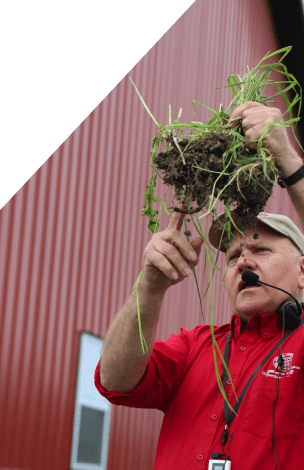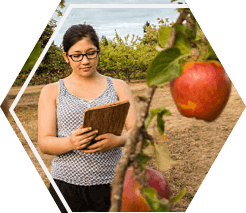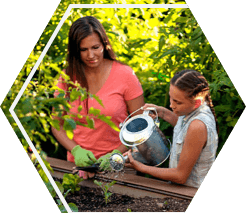

NEW BLOG POST
The Forgotten Field: The Lack of Agricultural Contexts in Science Classrooms
Read More

Our collective future hinges on inspiration, in the classroom and around the world. The challenges we face on climate, food security, and other overwhelming problems must be met by those who are inspired to break down barriers and build connections. Students and educators must remain connected to, and motivated by, the elements of their world that spark curiosity and generate wonder.
Encouraging inspiration is the cornerstone of modern STEM curriculum. New educational standards are emerging which stimulate question making and self-direction. As our global economy is increasingly reliant on technology, it is critical that our nation supports the next generation of problem solvers by providing the necessary foundational knowledge for them as they prepare to enter the field.
The Food and Agriculture Center for Science Education provides learning materials that are in alignment with contemporary STEM standards; materials that spark inspiration. We are seeking learners and educators who kindle the flame of knowledge; who add ideas and draw in the like-minded to contribute to the light. Together, we can work to solve the world’s problems, and we can help cultivate the next generation of leaders that will tackle the challenges they may face in this rapidly changing world.
A new vision for learning is activating improvements in science education across the U.S. The “Framework for K-12 Science Education” provides an innovative and uplifting foundation by which expectations are set for what science students should know and for what they should be able to do.
The required efforts for school districts around the nation to implement Next Generation Science Standards will demand a significant investment in time, resources, and an ongoing commitment from state, district, and school leadership. Continuing education requirements for NGSS present an additional encumbrance for the classroom.
The Center is ready to help fill this resource and training gap with materials and continuing education opportunities provided at no cost.


Food is universally relevant. After all, everyone eats. The production of food provides thousands of opportunities for students to explore naturally occurring phenomena among the interactions of living things and the earth’s systems. Further, the practice of agriculture, since its origins, has been a continuous series of design challenges to cultivate nature for the needs of humans. Food and agriculture present a relatable, and nearly limitless, lens through which students and educators can find opportunities to spark inquiry and solve problems.
The Food and Agriculture Center for Science Education seeks to make phenomena and design challenges known to science teachers who do not have direct access to food production or agriculture. The Center offers a conduit for educators, scientists and experts in the field to collaborate in the service of creating high quality learning materials and professional development experiences.

Currently about 58 million students attend elementary and secondary schools. Sixteen million of them will become adults in the next four years. They will choose careers, start families and formulate the structures, beliefs and patterns that will carry them through their lives. Unfortunately, very few of them will be exposed to agriculture along the way. The Food and Agriculture Center for Science Education is an educational effort to help young people gain a critical awareness of the juncture between food production, science and their daily lives.
Join us online to receive occasional communications from The Center. Unsubscribe anytime, your information will not be shared.